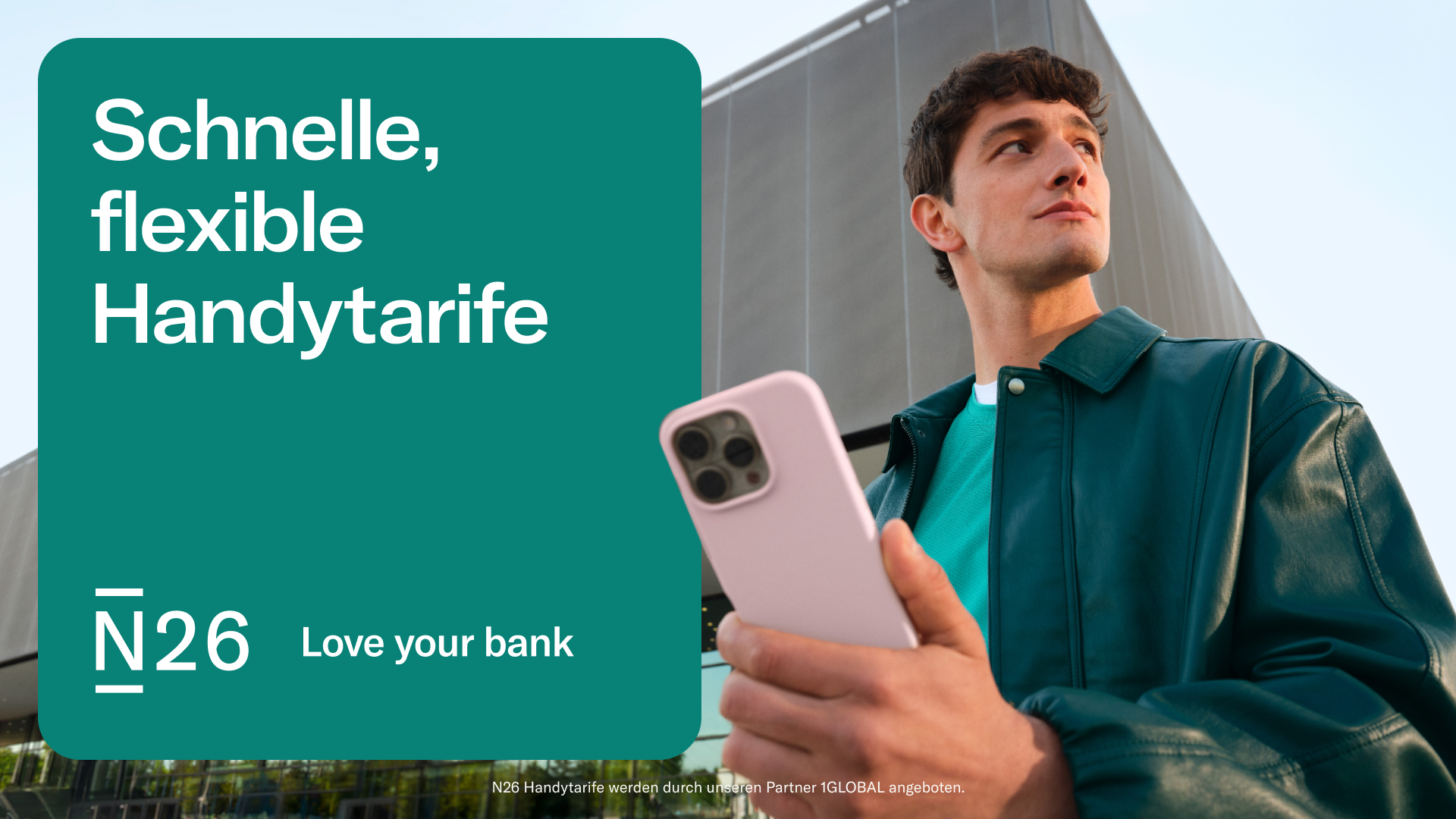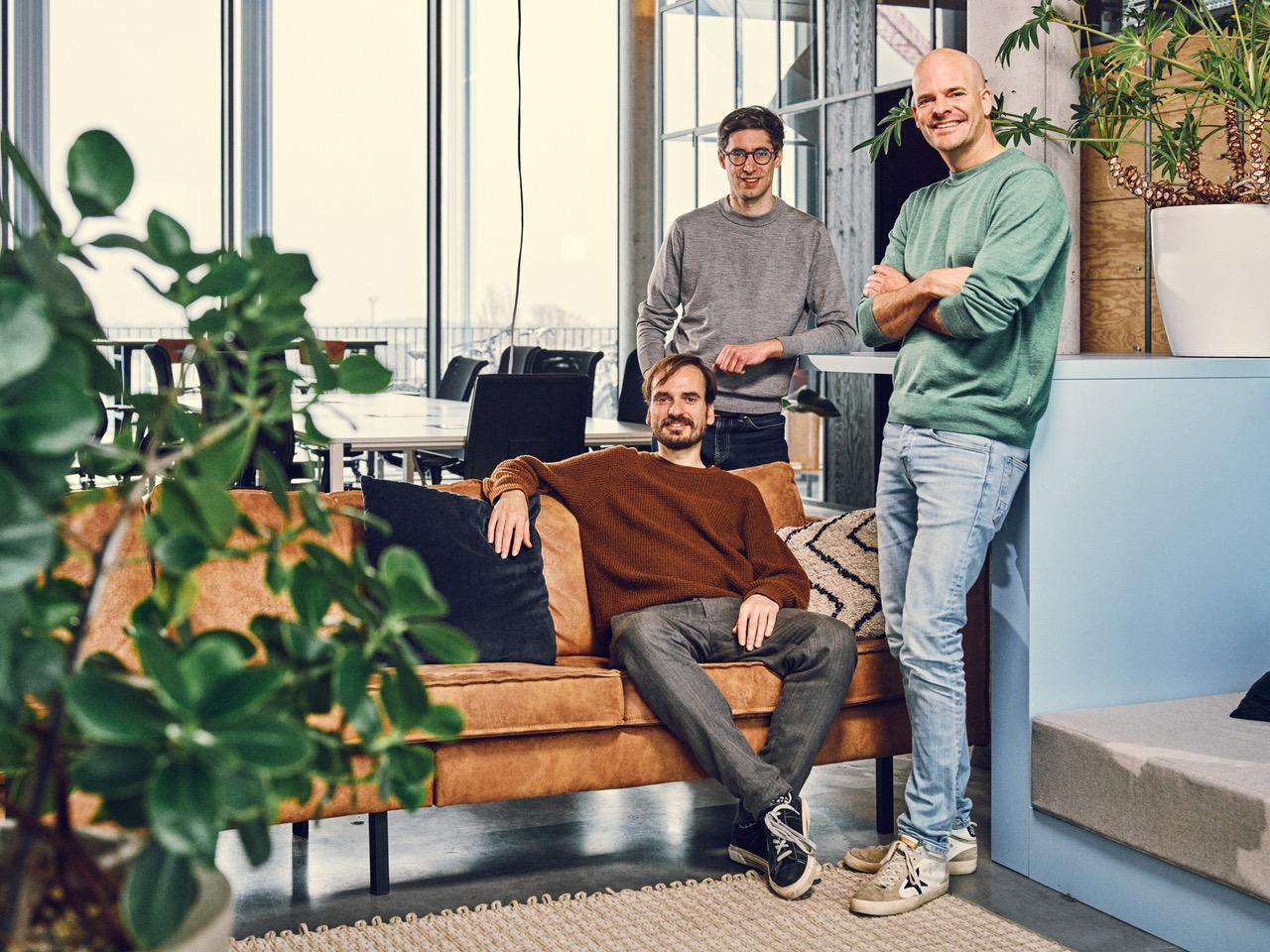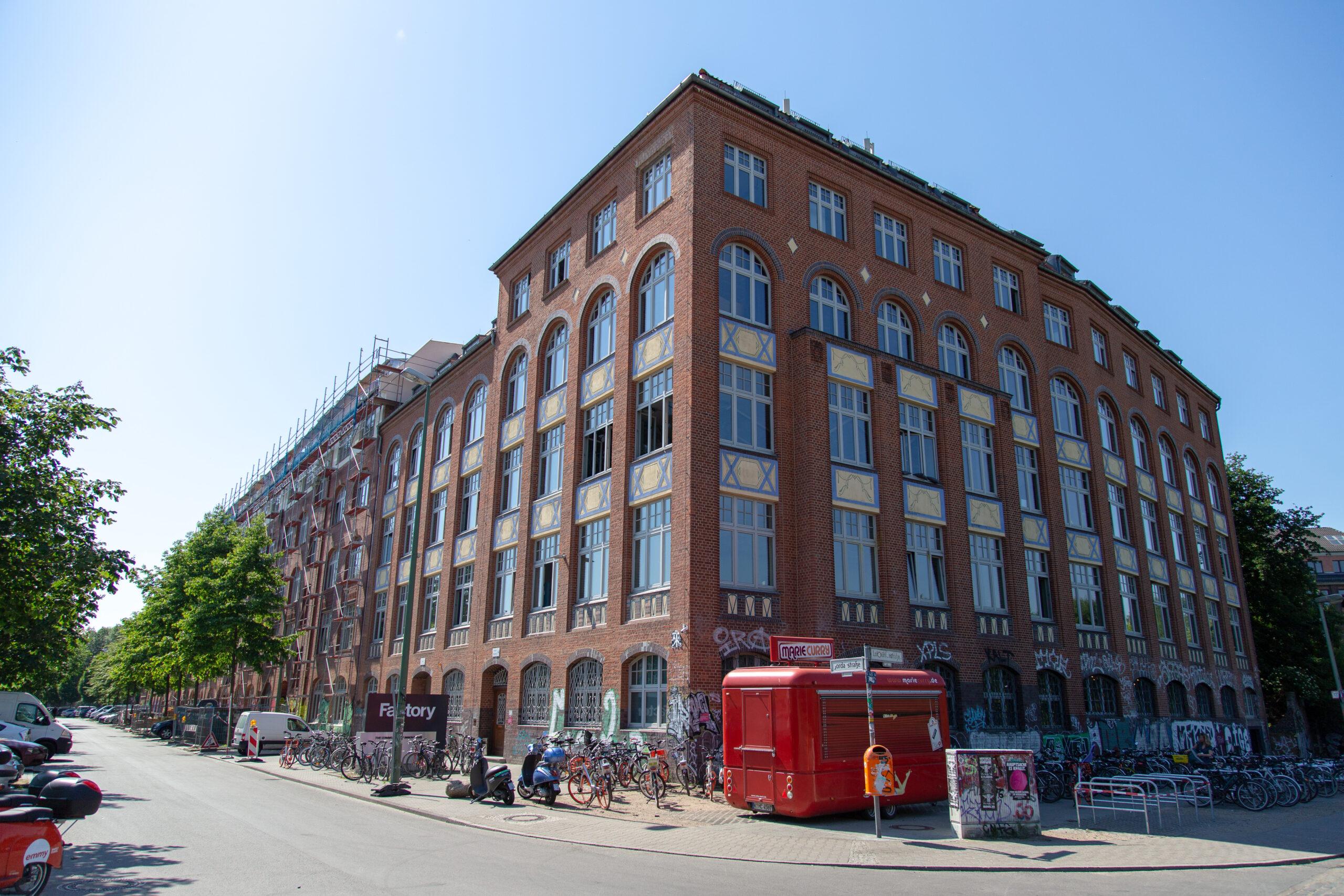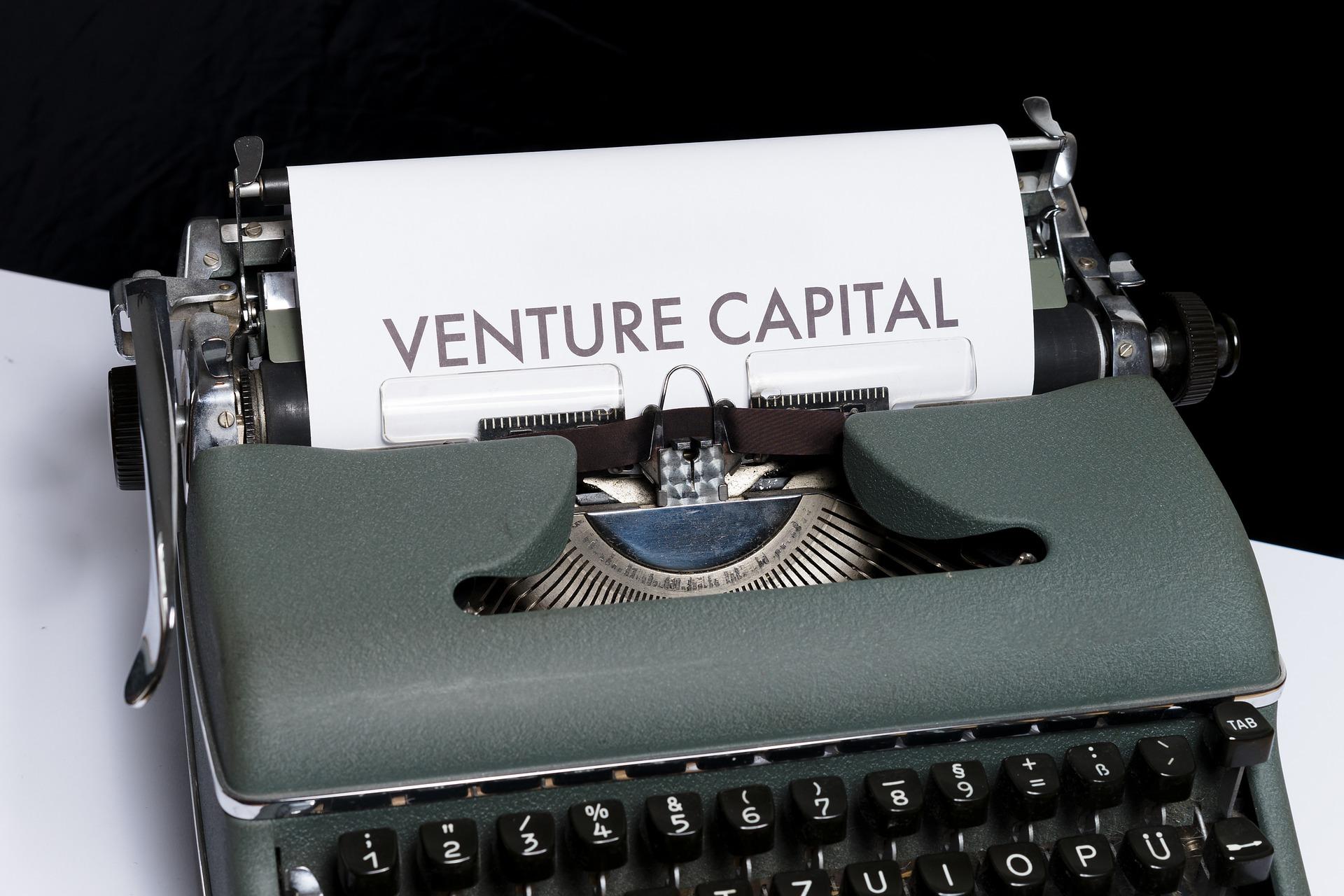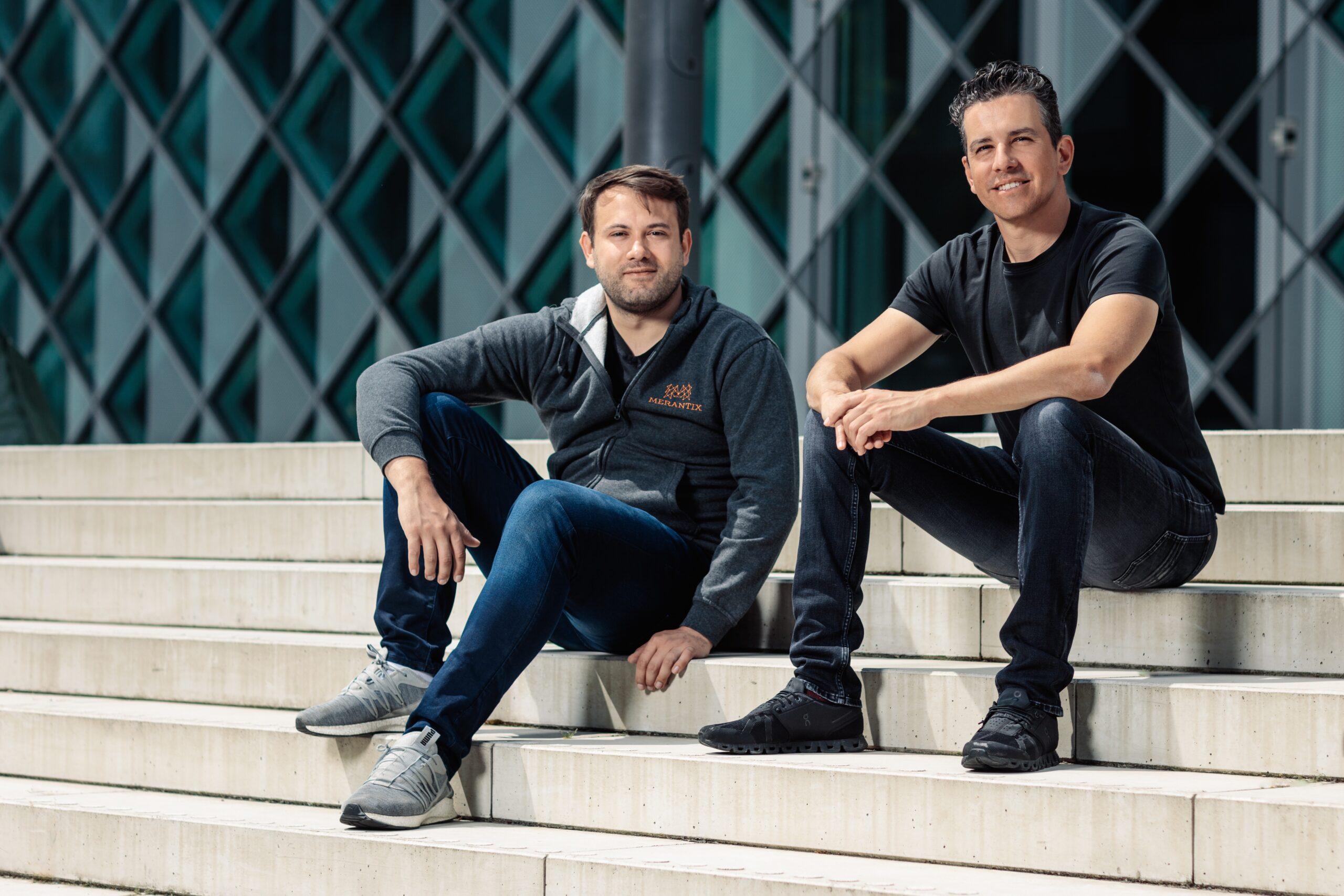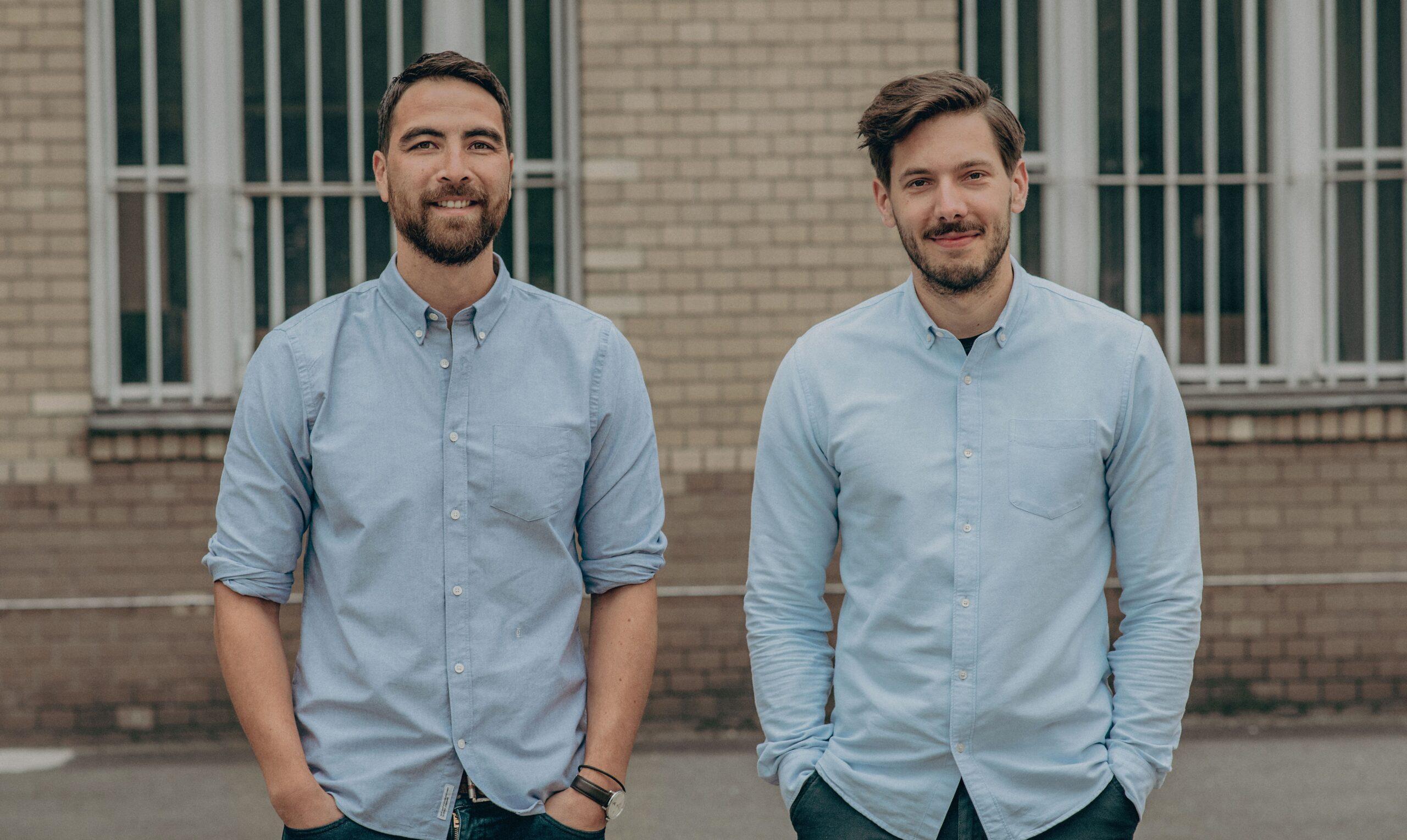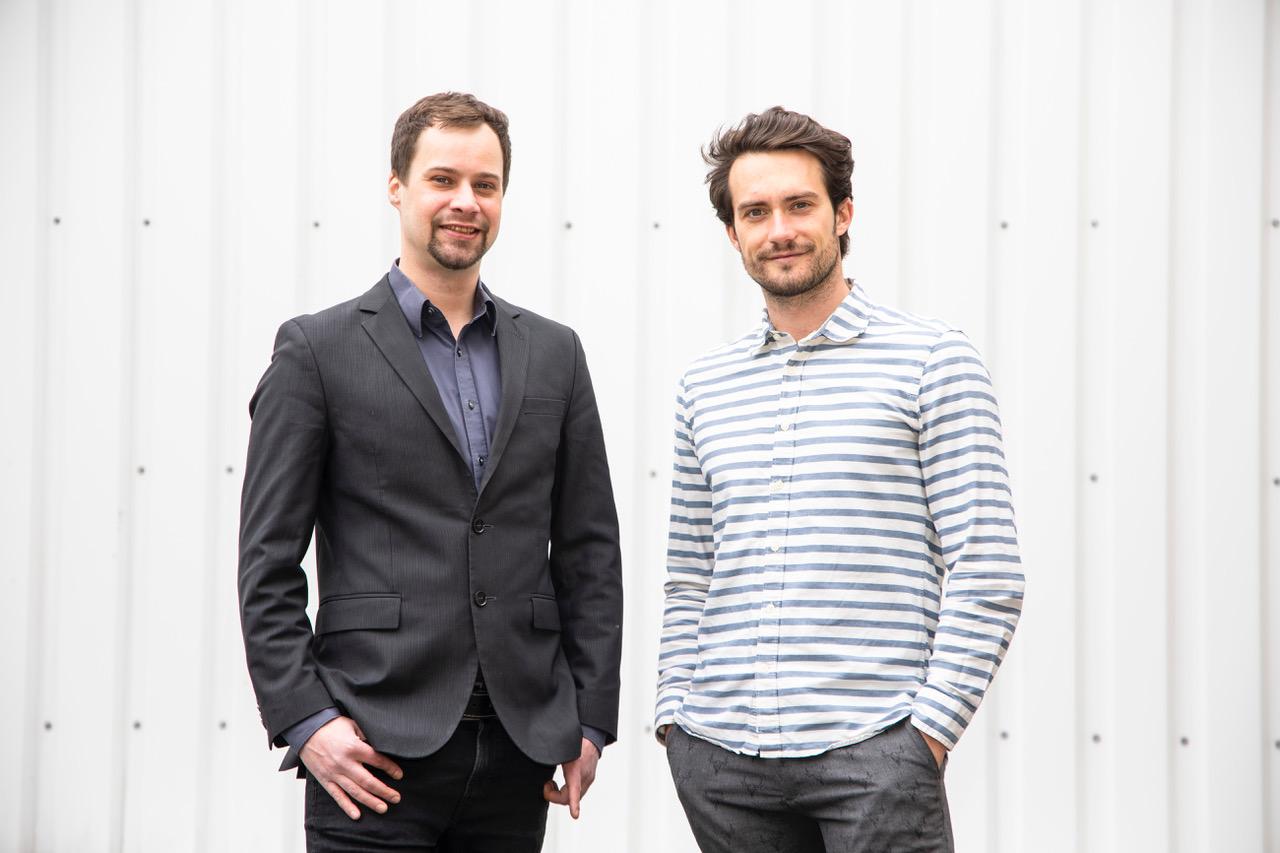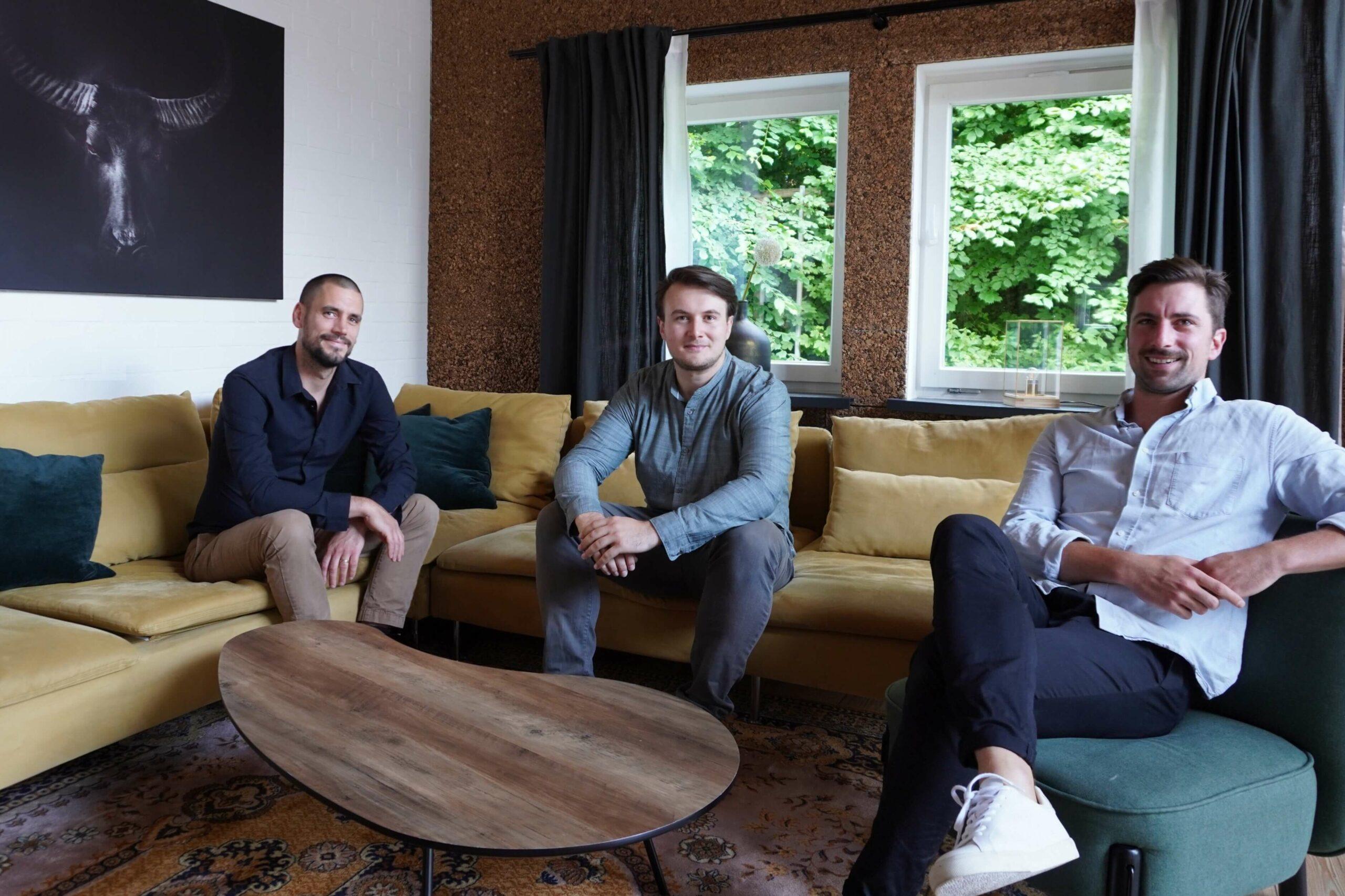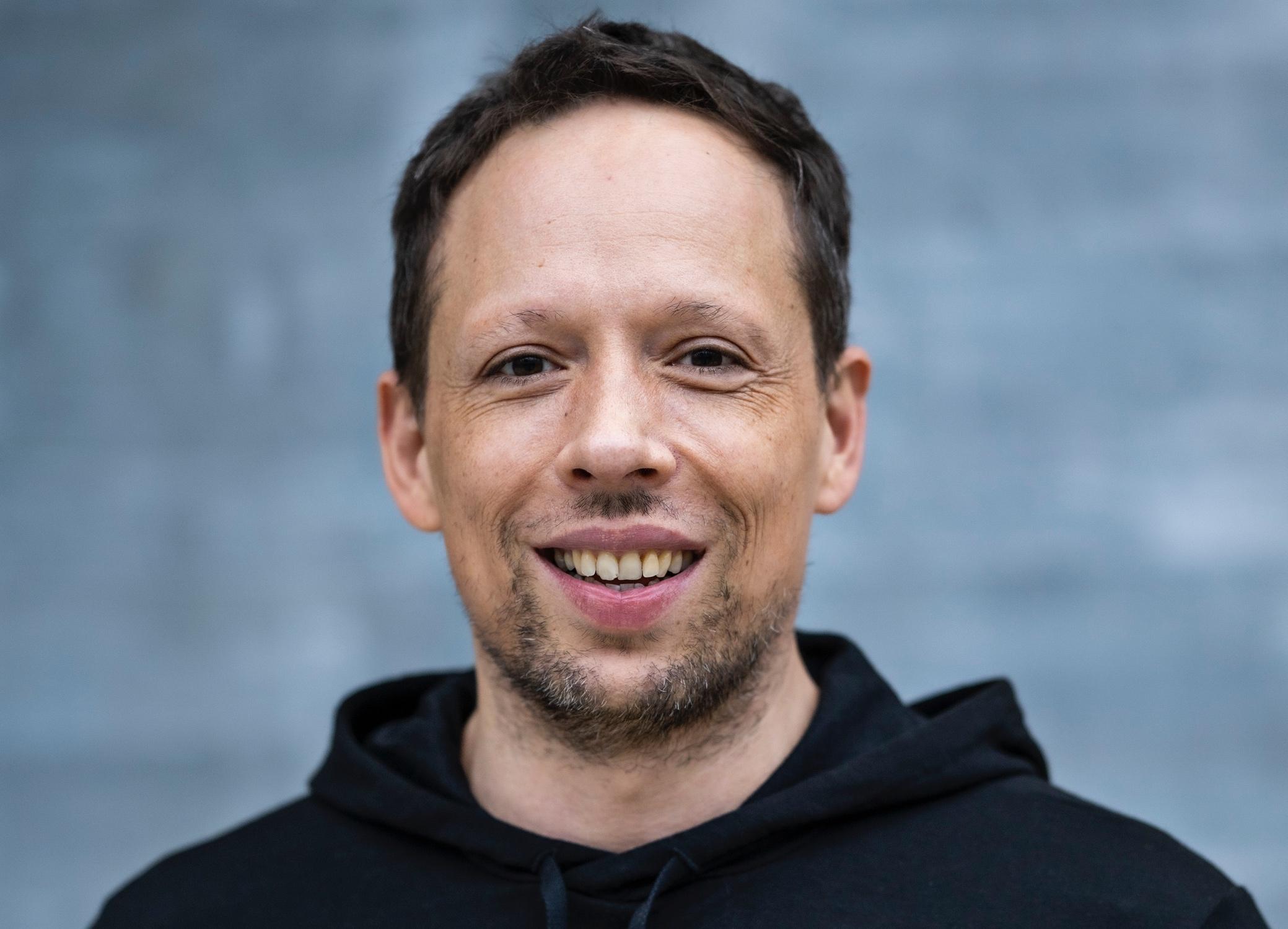"We do first and then talk"
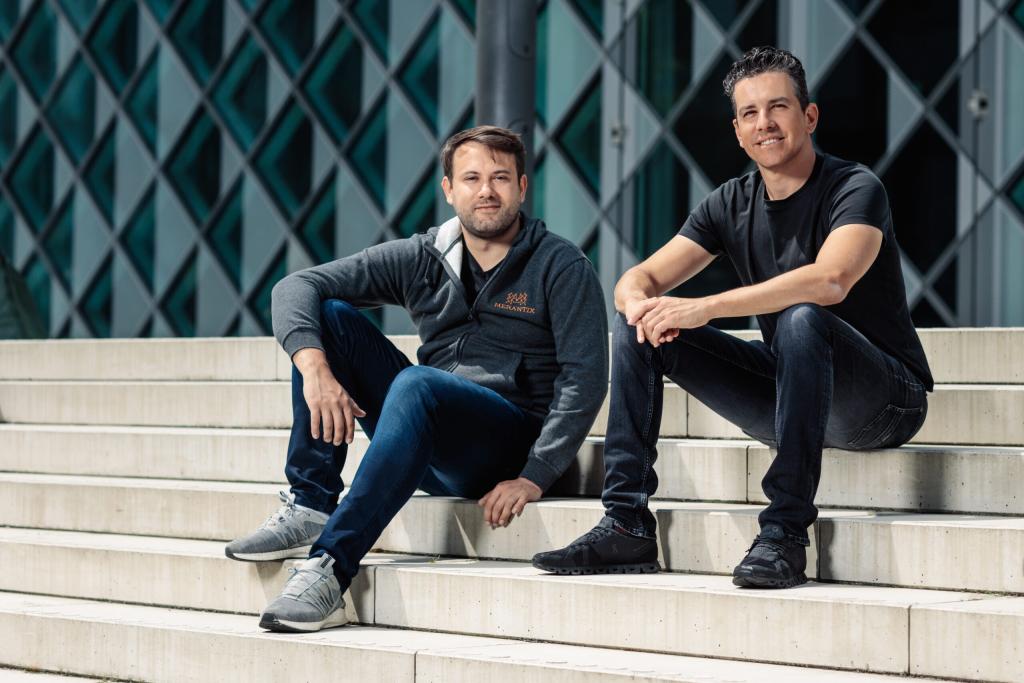
Merantix has created an AI campus in Berlin for a lot of money. In this interview, founder Adrian Locher (right) explains how this came about, the advantages of the campus and why they are going their own way with their company Merantix.
Adrian Locher himself stands out once again in the start-up scene. Born in Switzerland in 1982, he built and sold DeinDeal, among others, and now has Merantix, an investment vehicle that is neither a company builder nor a VC fund. The company's first projects are already up and running, but Locher is thinking bigger. That's why Merantix has rented an office building in the middle of Berlin and converted it into the AI Campus, which will open its doors on April 1.
Mr. Locher, you are setting up your own campus for artificial intelligence in Berlin Mitte, a rather daring project for a start-up financier. How did you come up with the idea?
The idea first came to us two years ago. It was the fourth time in three years that we had moved, simply because we were growing too fast. We then found an office with 600 square meters, at Oranienburger Tor and with a garden. All our companies are under one roof there. We noticed that the community between the teams was very lively, that there were meetings, lots of exchanges and many conversations in the coffee kitchen, what they call "coffee bar chats" in the US. And then we thought: why shouldn't we think ten times bigger?
Now it's 5,200 square meters. How did the planning go?
We started in mid-2019 and looked very closely at where we could create large collaboration spaces. The classic office where you can work in peace and quiet is available everywhere. But we want to create collaboration, which is why we helped develop and implement the building in this way. The AI Campus opens on April 1.
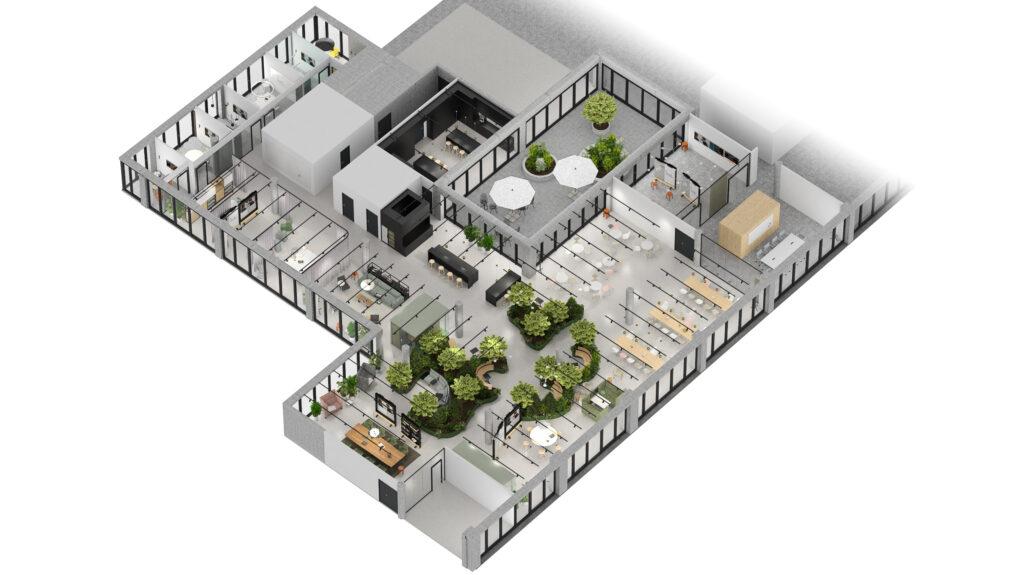
How well booked are you?
About 70 percent. I think that's a very good sign, especially in light of the ongoing lockdowns and the pandemic in general: Despite the current challenges, many organizations and companies are thinking big and long-term in terms of the AI ecosystem. We also have a lot of viewings every week, so we will be filling the last few spaces over the summer.
What have you invested?
We have invested a seven-figure sum. With 5,200 square meters and the average price per square meter in Berlin-Mitte, you can certainly do the math. We have leased the building directly for ten years and want to use it to strengthen the AI ecosystem. We could have waited for federal or state funding, but then the AI Campus would not be here today, not in three years and not in five years either. We are now in talks to see whether politicians would like to get involved. So we are doing it differently to the German government's AI strategy: we do it first and then talk.
With such an investment, start-ups should probably also have enough money for rent. What else?
The rent is not particularly high because we rent the space at cost price. We don't want to be real estate investors, but above all we want to create an ecosystem for artificial intelligence in Berlin. That's why all companies that want to move into the AI Campus must of course work in the field and be interested in exchanging ideas at meetings and events. They shouldn't be shy either. There will also be areas where visitors can touch or experience artificial intelligence. This building is intended to be a showcase for AI.
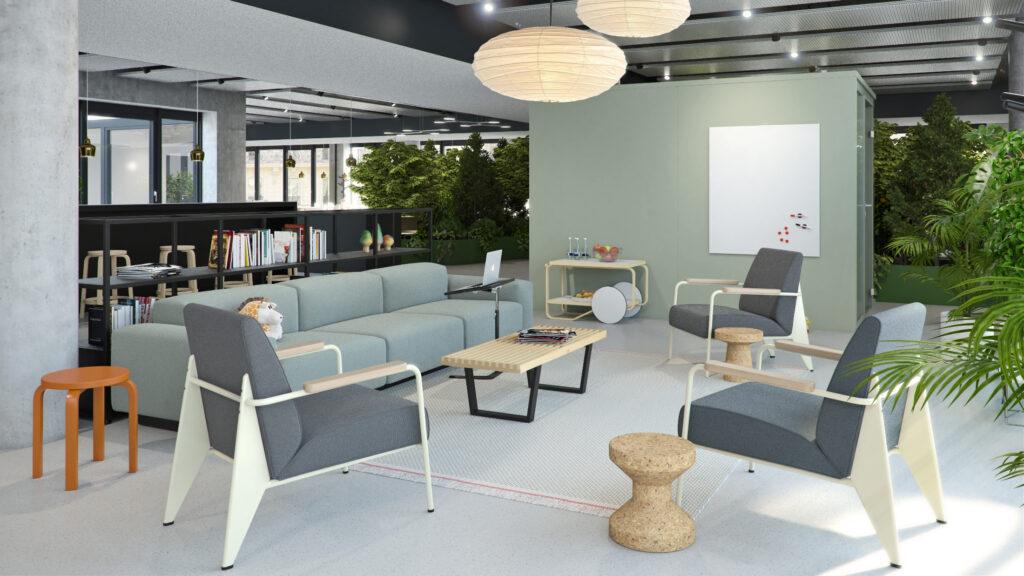
At Merantix, you deliberately call yourself Venture Studio. Why is that?
After selling my last company in 2015, I looked around for investor models in Europe, Asia and the USA and that's when I noticed the studio model, which we then implemented. We are too different from traditional VC funds and company builders. What has worked for start-ups in e-commerce, we don't see for AI companies: it's not enough to just pump money into a good idea. Over the years, we have built up a network of partners who support our founders with research, data sets and pilot projects.
What is the difference between that and what you do?
We invest much earlier, but only build a team around an idea once it has been successfully tested in initial pilot projects. The ever-evolving ecosystem is designed to offer the individual start-ups - and this is crucial - long-term access to expertise, technology, space and capital. We then also look for partners and companies that might be interested in such an idea and help with follow-up financing. So far, we have financed pre-seed and seed from a fund of 25 million euros. From the Series A financing round onwards, we bring in external investors.
You started in 2016 and have only spun off six companies. Where is the bottleneck?
We deliberately took our time in the first three years. We wanted to see what worked and what didn't work. We iterated our process several times and only when we were sure of ourselves did we set up faster. In 2020, we spun off two start-ups, this year there will be four or five.
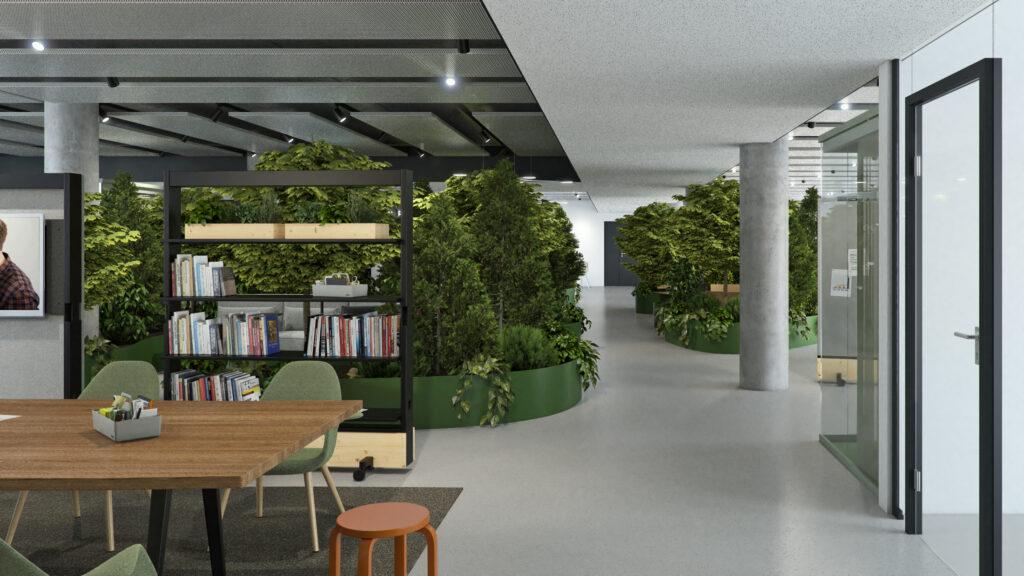
What are you no longer doing today that you did at the beginning?
We only set up the team and the company once we have discussed and validated the idea with the founder for twelve months. In other words, we know that there is concrete interest in the idea from potential customers. Only then do we get started, which is much more cost-efficient than having to build up a large team each time and then having to change direction.
How many ideas do you discuss each year?
More than a thousand.
How many make it to the incubation phase?
Last year it was four.
That's 0.4 percent. Where do the ideas come from?
On the one hand, we develop ideas with external founders who bring impetus from their own research work, for example, from our network, where we also work closely with universities, and from our Merantix Labs, which sets up AI projects with SMEs and DAX companies. The opportunity may seem small, but we are very open to new ideas from founders.
Thank you very much for the interview.
Personal details: Adrian Locher is co-founder and CEO of Venture Studio Merantix. Born in Switzerland, he studied at the University of St. Gallen (HSG) and has been active as a serial founder and angel investor in Europe and the USA for more than 15 years. Before Merantix, he built up DeinDeal. Adrian Locher's investment portfolio includes a company in the renewable energy sector, a booking provider and a financial automation company.

Newsletter
Startups, stories and stats from the German startup ecosystem straight to your inbox. Subscribe with 2 clicks. Noice.
LinkedIn ConnectFYI: English edition available
Hello my friend, have you been stranded on the German edition of Startbase? At least your browser tells us, that you do not speak German - so maybe you would like to switch to the English edition instead?
FYI: Deutsche Edition verfügbar
Hallo mein Freund, du befindest dich auf der Englischen Edition der Startbase und laut deinem Browser sprichst du eigentlich auch Deutsch. Magst du die Sprache wechseln?



